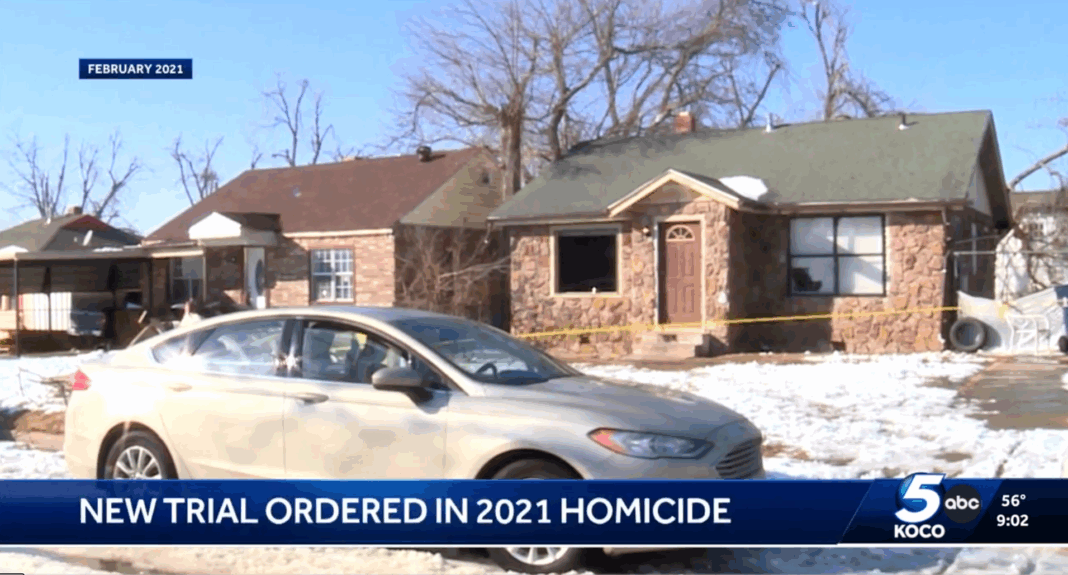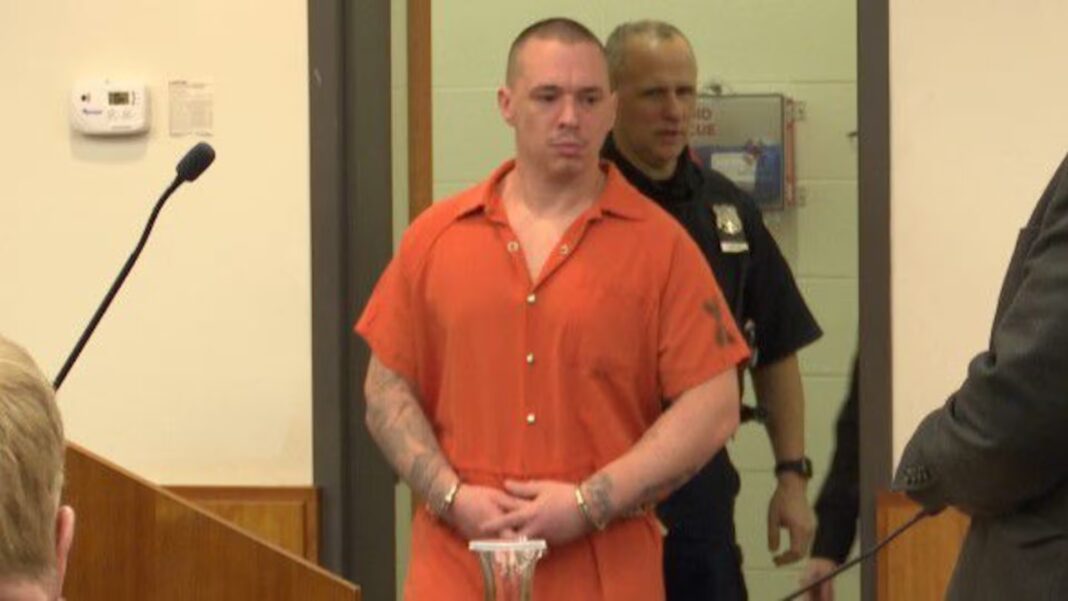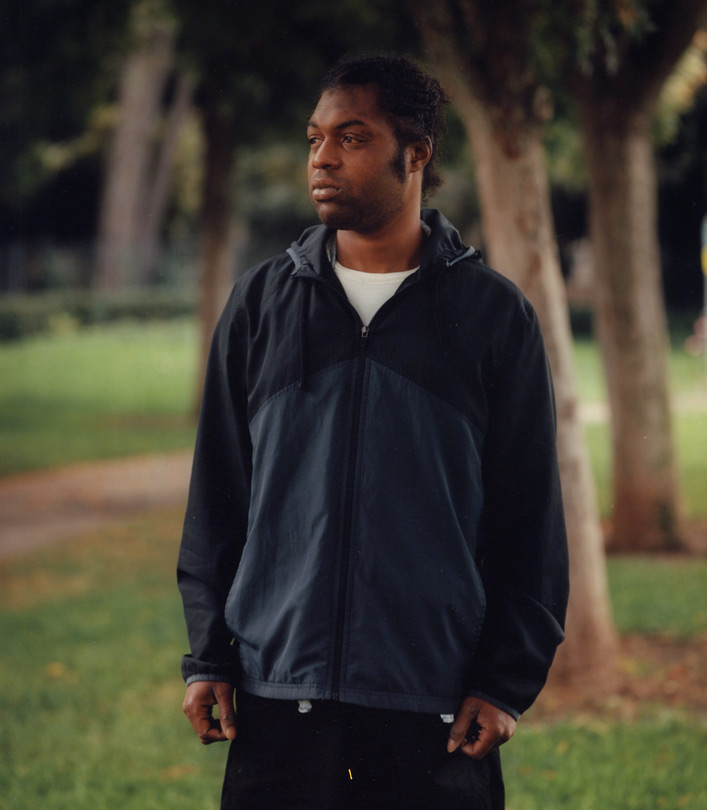In a rare rebuke of judicial overreach, an Oklahoma district court has overturned the first-degree murder conviction of Jonathan Portillo-Lopez, ruling that his constitutional right to testify in his own defense was unlawfully curtailed.
The September 2025 decision vacates Portillo-Lopez’s life sentence for the 2021 shooting of his roommate, Jordan Ibarra-Ortega, in southwest Oklahoma City. A retrial is expected in early 2026, but the opinion already carries wider implications for courtroom fairness: judges, the court held, cannot silence a defendant’s story for the sake of procedural neatness.
A Shooting and Two Competing Stories
Just after 2 a.m. on February 14, 2021, police were called to a modest house on Southwest 32nd Street. Inside, they found Ibarra-Ortega dead from a single gunshot wound. Portillo-Lopez, then twenty-nine, had left the scene but surrendered later that day.
He told detectives the shooting followed a violent confrontation—an argument that turned physical and ended in panic. Prosecutors cast it instead as a crime of temper, not fear, noting that Portillo-Lopez failed to call 911 and briefly fled before surrendering.
At trial, those competing narratives came down to one question: would jurors believe that Portillo-Lopez shot to defend himself or to avenge an argument?
When the Defendant Took the Stand
Portillo-Lopez was his own best witness. When he testified, he began recounting earlier incidents in which his roommate had threatened or intimidated him. He was explaining, his lawyers said, why he feared Ibarra-Ortega that night.
But one remark changed everything. In describing his fear, Portillo-Lopez mentioned that Ibarra-Ortega had a criminal history—information barred by a pretrial order meant to prevent prejudice. The prosecutor objected. The judge excused the jury and ruled that the comment violated the order.
What followed stunned the defense. Instead of instructing the jury to disregard the remark or steering the questioning elsewhere, the judge terminated Portillo-Lopez’s testimony entirely. The jury never heard his account of the shooting itself, only fragments cut short mid-sentence.
That silence, the appellate court would later say, “left jurors with an incomplete and distorted picture of the events at issue.”
The Appeal and the Constitutional Fault Line
On appeal, defense attorneys argued that the judge’s response was grossly disproportionate. Ending the defendant’s testimony, they said, transformed a routine evidentiary objection into a constitutional violation.
The appellate panel agreed. Its opinion concluded that Portillo-Lopez had been “effectively silenced,” denying jurors the chance to weigh his perception of danger—the central element in any self-defense case.
“Fairness demands proportionality,” the judges wrote. “Excluding testimony wholesale for a minor evidentiary breach substitutes punishment for process.”
Without his full testimony, the panel noted, jurors were left to infer motive and state of mind from prosecution framing alone. The verdict, the court held, could not stand.
Why It Matters
The right to testify is personal, fundamental, and seldom limited. Courts can regulate content but not extinguish the voice of the accused.
“Cutting off a defendant mid-testimony is one of the harshest remedies available,” observed an Oklahoma City defense lawyer familiar with the ruling. “You correct, you caution—but you don’t silence.”
In self-defense cases, where everything turns on perception, that principle is even more critical. As a University of Oklahoma law professor explained, “Reasonableness can’t be judged in a vacuum. Once the defendant’s account disappears, so does the jury’s ability to understand fear.”
A Lesson in Proportional Justice
The Portillo-Lopez case illustrates how quickly courtroom management can collide with constitutional guarantees. Judges often walk a tightrope between enforcing evidentiary rules and preserving the right to a complete defense. Most use narrower tools:
-
a curative instruction to disregard the comment,
-
a redirection of questioning, or
-
an admonition to counsel.
What occurred in Portillo-Lopez’s trial was different—an abrupt halt with no corrective option offered. The appellate court found no evidence of defiance or intent to violate the order, only a misunderstanding. The sanction, it concluded, “served order at the expense of truth.”
Preparing for a Second Trial
The Oklahoma County District Attorney’s Office plans to retry the case early next year under clearer evidentiary rules. Both sides will rely on the same physical and forensic evidence—ballistics, photographs, and witness statements—but this time, the jury will hear the defendant’s full version of events.
Portillo-Lopez is expected to testify again, describing Ibarra-Ortega’s aggression and the split-second decision he says he made in fear. Prosecutors will argue that the shooting was deliberate and that his flight from the scene shows consciousness of guilt.
For the first time, both narratives will be complete.
Beyond One Case
The reversal in State v. Portillo-Lopez is not about guilt or innocence—it is about the conditions under which guilt can be fairly judged. It reflects a growing judicial awareness that procedural enforcement cannot eclipse the right to be heard.
Oklahoma courts, like many nationwide, are confronting how rules meant to ensure fairness can, when applied too rigidly, distort it.
As one veteran prosecutor put it after the ruling, “Justice doesn’t depend on perfection. It depends on legitimacy. And legitimacy comes from a process that lets every side be heard.”
For Jonathan Portillo-Lopez, that chance—to tell his story from beginning to end—will finally come in 2026. For the justice system, the case stands as a quiet but powerful reminder: procedure exists to serve fairness, not replace it.



